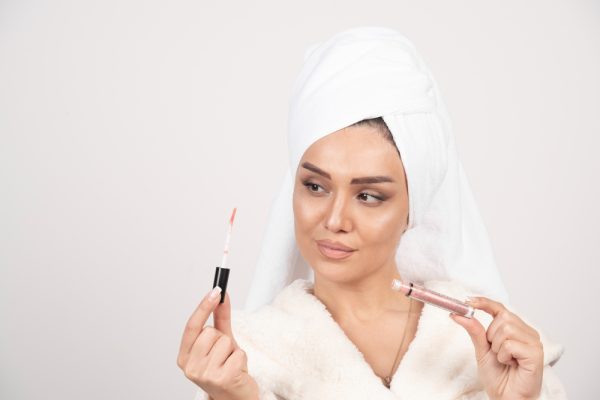
That lip gloss tingling on your mouth isn’t magic. It’s science. And a little trickery. Plumping glosses promise fuller lips without needles, but they come with fine print most folks ignore. You put on something that stings a bit, and you think your lips are growing. But are they?
The Gloss Game: What’s In That Tube?
Most plumping glosses work by irritating your lips. Yeah, you read that right. Irritating.
Old school glosses used stuff like cinnamon, menthol, and capsaicin (that kick from chili peppers). Some even used bee venom. Why? Because those things make blood rush to the surface, which causes swelling. That swelling makes your lips look bigger, for a while. Now, if your skin doesn’t like those irritants, you may end up with a rash. Your lips could sting, peel, or get dry. Not cute. Some newer formulas go a lighter route. They use things like caffeine or niacin. These can make blood vessels widen without the burn. The trick is that most people don’t do patch tests, then blame the gloss when their lips lose their mind.
When Reviews Save You from Burning Lips
Most folks don’t read product reviews until their lips feel like they kissed a jalapeño. Online reviews help filter out the nonsense. If thirty people say the same gloss caused a rash, believe them. Reviews aren’t gospel, but they’re close. Read enough and you’ll notice patterns—who’s hyped up, and who’s telling the truth.
For example, someone reading a Fièra Lip Plumper review might want to see if it caused stinging, dried out lips, or delivered anything past a shiny coat. Reviews like that aren’t written by chance. People talk when their lips get mad.
But Is It Safe?
If your lips don’t mind spicy extracts, fine. But nobody should be putting this stuff on ten times a day. It’s temporary, not a treatment. Dr. Kung says tingling doesn’t mean it’s actually working. It just means something’s irritating your skin — again, on purpose. That’s how the swelling happens, Dr. Jaliman adds that allergic reactions can happen, especially with ingredients like cinnamon or menthol. So don’t skip reading the label. And definitely don’t skip patch testing before going full glam. Glosses with caffeine or niacin may be gentler. But even those haven’t been studied enough to know if they really boost lip size in a big way.
What Actually Helps: Safer Options
Instead of going full fire-lips, look for glosses with hyaluronic acid, peptides, or collagen. These ingredients do more than tingle — they hydrate and smooth. Natural oils like castor, shea butter, and coconut oil also help lips stay soft and look fuller. These are safe to use every day. Even pregnant women can use them without worry. That plump won’t be dramatic, but your lips won’t peel off after two hours, either.
How Long Does the Plump Stay?
A few hours, tops. That’s your timeline. You apply the gloss, feel the tingle, get the fake swell, then it fades. Some brands may last a bit longer, but this isn’t a permanent fix. Don’t get your hopes up. It’s a coat, not a cure.
Want Bigger Lips Without the Burn? Here’s What’s Out There
Fillers. That’s the real route. Stuff like Restylane or Juvederm gives longer-term results. We’re talking months, not hours. They fill your lips with hyaluronic acid to physically reshape them. But it comes with needle pokes and healing time. After that, your pout stays firm till the filler fades. If that’s too extra, simpler things like lip scrubs or balms work too. Sugar, honey, and coconut oil — they exfoliate and moisturize. Healthier lips always look fuller. Add peptides or hyaluronic acid to daily car,e and you’ll see a difference slowly, without the sudden sting.
Stop Blaming the Gloss If You Didn’t Test It
Before pulling out your phone to tweet about a gloss that “betrayed” you, ask yourself: did you even patch test it?
Did you read the ingredients?
Did you fall for the “minty means magic” trick?
These products aren’t evil. But they don’t fix your lips health.They fake swelling and call it plumping.
Final Word: Keep Your Lips and Your Expectations in Check
Plumping gloss won’t harm you as long as you respect your skin. Watch out for irritants. Use it occasionally. Know it’s a temporary look. If something burns more than it tickles, toss it. And read that label. Your lips will thank you.

